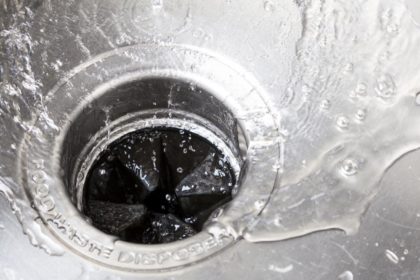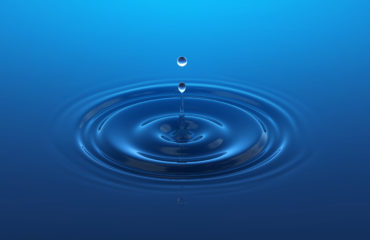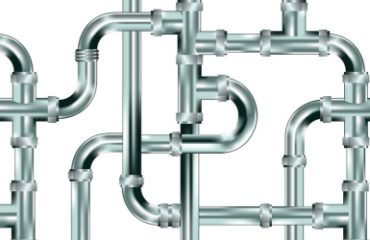
Chances are, you’ve stood in your kitchen and asked the question, “What is that smell?” Chances are, it’s your garbage disposal. It may seem counterintuitive given the job of a disposal is to get rid of food scraps, but it happens.
Rotating stainless steel blades are mounted on a spinning plate, breaking food scraps down into tiny particles. These particles are shoved washed through little holes and spaces in the plate. Once they are ground, running water flushes them out and into a wastewater pipe. The particles then flow to the sewer or into your septic system. Always use cold water when using the disposal.
The smell comes from food and bacteria that get stuck on the plates causing it to rot and smell. But don’t fret, there are simple fixes that generally don’t require a plumber.
• Water, Ice and Citrus: Turn on the unit and run cold water. While it’s running, drop ice (2-4 trays) and rock salt into the disposal and feed it as quickly as it will take it. This will freeze everything stuck on the plates causing it to chunk off. (Bonus: the ice will help sharpen the impellers and the salt will help disinfect.) Let the water continue to run, then chop a lemon or other citrus into small chunks and drop them in, which will leave a pleasant scent.
• Vinegar and baking soda: Turn on the disposal and pour in 1 cup of dry baking soda with 1 cup distilled white vinegar.
• Bleach: Run a mild or slightly scented bleach and cold water through the disposal.
• Scrubbing: Unplug and disconnect the unit and use a dish brush or wire brush to clean the inside. Be very careful if you use this method and make sure the unit is completely turned off.
• Dishwasher discharge: Have your plumber make sure the the drain hose from your dishwasher is connected to the port on your disposal. This will help keep your disposal clean and odor free.
To keep the smells at bay, here are some preventative measures to keep in mind.
• Don’t do anything that won’t break into tiny pieces or completely dissolve.
• Don’t drop in fibrous items like celery or banana peels that will wrap around the plates. Things like rice, pasta, coffee grounds or potato peels will clump up and stick, clogging the disposal. Never try to grind bones, fruit pits or other food particles that won’t break down.
• Don’t deliberately put grease down the disposal.
• Don’t use hot water for cleaning or in your day to day use. This will cause any grease or oil that did make it to the disposal to loosen up and congeal, clogging your pipes.
Garbage disposals may seem like a luxury, but actually they are environmentally responsible. Diverting food waste from landfills is one of the most important things we can do to affect climate change. Food waste emits methane, a potent greenhouse gas having a warming temperature 21 times that of carbon dioxide. Compost can do the same, but is not always a feasible option. For more information: Diverting and converting food waste.



